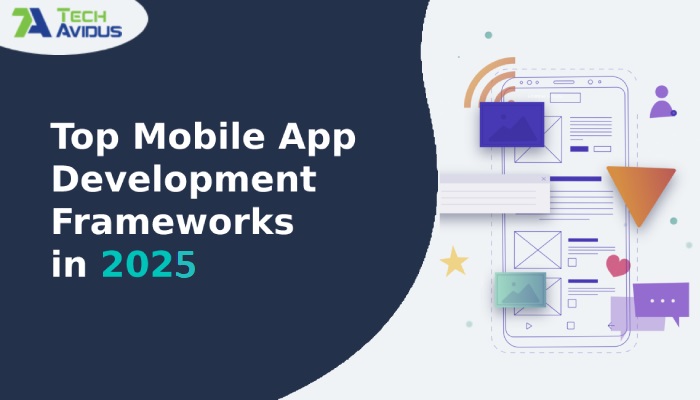
Mobile app development frameworks are essential components in creating mobile applications that make your life more convenient. These frameworks allow developers to build beautiful mobile apps that enable actions with just a few taps, from waking up early to getting to work on time. Many modern applications leverage location services, showcasing the capabilities of mobile app development frameworks to drive innovation in today's app generation.
In the background of these fantastic applications, thousands of mobile app development frameworks are working to offer you the best user experience possible. Various frameworks for mobile app development are out there, and we will review only the most effective among them!
React Native is the best JavaScript library to create native apps for all devices and platforms. Through React Native, you can build rich applications that work on both iOS and Android. It also lets you create specific versions of components for each platform, allowing for using the same codebase across different platforms. Facebook launched its community-driven JS library in the year 2018.
The open-source framework is favoured to speed up the process and code the app's loading. The framework is capable of developing mobile applications that have Typescript, CSS, Vue.js, Javascript, and Angular enabled. Most companies use Native Scripts because it has the advantages of proper backend support and full access to iOS APIs, Android apps that run on multiple platforms, and an interface for the user that is native and does not require web browser views.
Swiftic is a do-it-yourself mobile app platform designed to make it simple for anyone to create unique apps for their business. It simplifies app development by allowing developers to incorporate existing content from the internet instead of starting from scratch.
It is one of the most adaptable mobile application development frameworks providing a seamless user experience, counting specialized and easy-to-follow methods.
Push alerts and feeds from social media platforms and other technological advancements integrate into the framework. It's among the most straightforward mobile application development frameworks because it lets you design, launch, develop, and extend your app using a single control panel.
Xamarin is an open-source, Microsoft-owned framework that allows developers to create advanced and native Android, iOS, macOS, televisionOS, and watchOS apps that make use of .NET as well as C# programming languages. It allows users to deliver the best performance natively and provide a unique user experience. In Xamarin, the abstraction layer manages the interaction between the platform's underlying and the shared code. The framework enables developers to create an ecosystem of APIs, backends, components, and more. It utilizes libraries, tools, and programming languages supported by a lively community.
Ionic is a clear framework that can use to create Progressive Web Apps (PWAs) that are hybrid, cross-platform, and mobile apps. Ionic is a framework that is accessible that makes use of Apache Cordova (PhoneGap) plus Angular to let programmers develop Android and iOS applications that seamlessly work with each other.
The framework assists developers in developing solid and feature-rich mobile apps. One of the main advantages of Ionic is that it allows programmers to use various UI components within the application framework, like filtering views, inputs views, simple navigation, and actions sheets.
The framework was previously named PhoneGap; Apache Cordova is an industry-leading mobile application design framework that is user-friendly for developers. It's a cross-platform app development framework that uses CSS3, HTML5, and JavaScript to create mobile-friendly applications. Cordova plugins allow developers to use the device's hardware capabilities like GPS cameras, GPS, and accelerometer, to provide an app experience native to the device. The most notable aspects of Apache Cordova are a more straightforward development process using one codebase and third-party tools to manage apps.
jQuery Mobile is a precise cross-platform mobile application development framework that allows the creation of platform-independent applications. Using JavaScript and HTML, developers can use this framework to create flexible apps on various platforms, such as smartphones, tablets, and computers.
The jQuery framework makes use of the HTML5-based foundation as well as it uses the Theme Roller to provide highly customizable themes for both online as well as mobile applications. jQuery Mobile is available in a custom framework and a stable version.
Modern frameworks will transform the way we do business moving into the future. Application development experts can choose the frameworks mentioned above for app development.
As you work, you may be required to consider these options for future mobile apps. We've discussed the most popular mobile app development frameworks.
Therefore, if you've got the correct app concepts, you are now in a position to begin the stage of development. There will be no regrets when you execute the task correctly. If you're seeking to integrate your company's business or operations using mobile applications, we'll be able to meet all your developmental and strategic needs. Let's connect.
Our Top 1% Tech Talent integrates cutting-edge AI technologies to craft intelligent, scalable, and future-ready solutions.
All Rights Reserved. Copyright © 2025 | TechAvidus